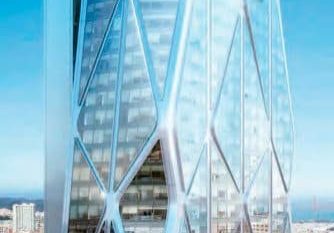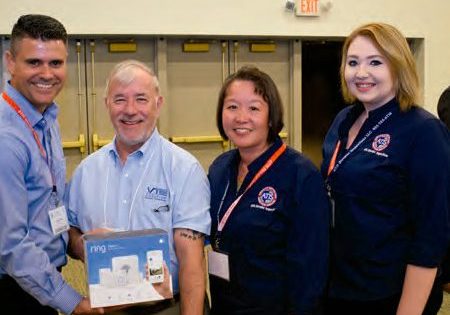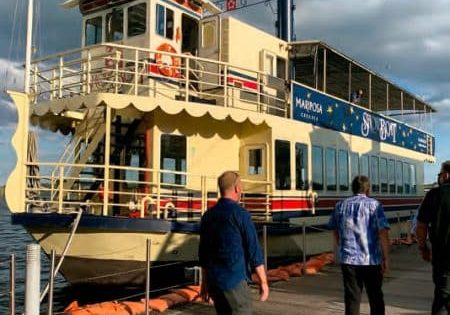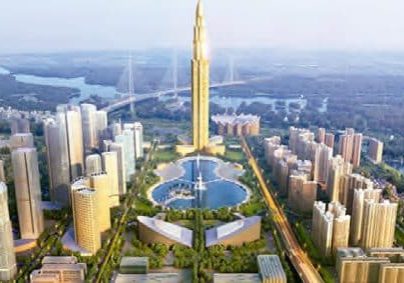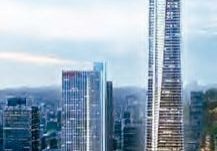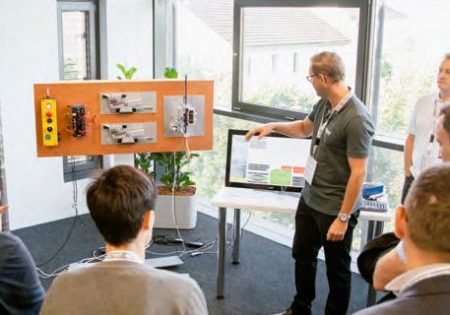VT a Key Part of Airports’ “Science of Arrivals”
Dec 1, 2019
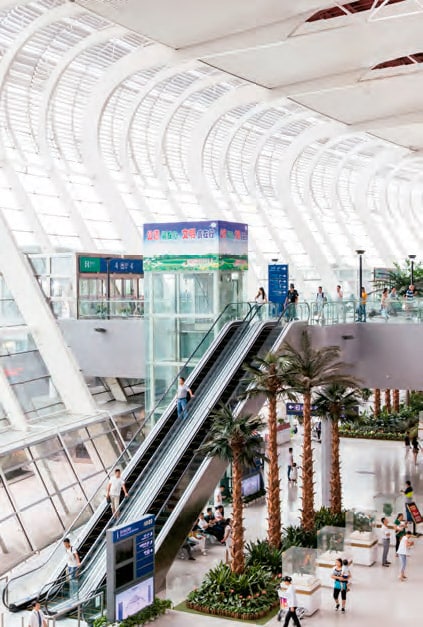
thyssenkrupp experts discuss escalators, moving walks and more at Munich trade fair.
by Kaija Wilkinson
photos courtesy of thyssenkrupp
Airports: They’re the scenes of tearful goodbyes, panicked departures, joyful arrivals and, in many cases, provide a traveler his or her first impression of a new city or country. That’s why navigating them should be as hassle-free, safe and pleasant as possible. Technology including escalators and moving walks (and elevators and passenger boarding bridges [PBBs]) is critical, and companies like thyssenkrupp are proud to provide them.
thyssenkrupp Airport Solutions, the airport division of the German multinational conglomerate, hosted a panel titled the “Science of Arrivals” at inter airport Europe 2019, a biennial expo held this year at the Trade Fair Centre in Munich, Germany, through October 8. Discussing what key factors affect air travelers’ experience when arriving at an airport, the panel was led by thyssenkrupp Airport Solutions CEO Mauro Carneiro, who was joined by aviation psychologist and consultant Paul Dickens and Peter Rieff, an airport planning and building- design consultant with the Netherlands’ Airport Consultants. Their aim was to answer the following questions:
- Why do first impressions matter?
- What can add to or detract from a passenger’s experience?
- Why do brands need to invest more in a great arrival experience?
- What sensory and experiential factors are vitally important to first impressions?
Carneiro observed air-passenger numbers are expected to double to 8.2 million by 2037, which will make mobility and accessibility all the more important.
Dickens said:
“Our panel explored the good, the bad and the ugly of airline experience. We put forward some ideas and solutions for some of the common challenges faced in airports and discussed exactly what defines a great arrivals experience, and what brands can take away from this for the benefit of their customers.”
thyssenkrupp demonstrated its latest airport-centric technology such as its Remote Control System for PBBs; Intelligent Management Gate System, which digitizes and integrates gate-operations data; and Visual Guidance Docking System for aircraft on the runway. All combine hardware and software technology to safely control the systems and ease passenger flow.
Visitors to the thyssenkrupp booth could also learn more about MAX predictive-maintenance technology that troubleshoots problems with elevators, escalators and moving walks before they occur. This type of technology aims to minimize the annoying — and potentially disastrous — problem of malfunctioning vertical-transportation equipment at airports.
Our panel explored the good, the bad and the ugly of airline experience.
— aviation psychologist and consultant Paul Dickens
thyssenkrupp provided 143 PBBs to Istanbul Airport, one of the biggest installations globally for what has been described as the Turkish Republic’s largest-ever investment at EUR22 billion (US$24.3 billion). Although other players provided the lion’s share of the elevators, escalators and moving walks at Istanbul Airport, thyssenkrupp has delivered significant escalator and moving walk orders to airports all over the world. Two of its recent such projects were:
- Hamad International Airport in Doha, Qatar: thyssenkrupp’s largest-ever service contract that included installation of 391 units — 105 escalators and 52 moving walks, as well as 234 elevators. This job represented the OEM’s largest-ever service contract, which included 90 PBBs, with one for exclusive use by the royal family and government officials.
- Toronto Pearson International Airport, where its high-speed moving walk ACCEL first went into operation in 2009. Today, ACCEL technology at Pearson transports more than 19 million passengers each year, enabling them to reach 12 km/hr while walking. It provides the airport with the capacity to transport more than 14,000 people per hr. thyssenkrupp maintains more than 350 escalators and elevators at the airport.
Get more of Elevator World. Sign up for our free e-newsletter.


